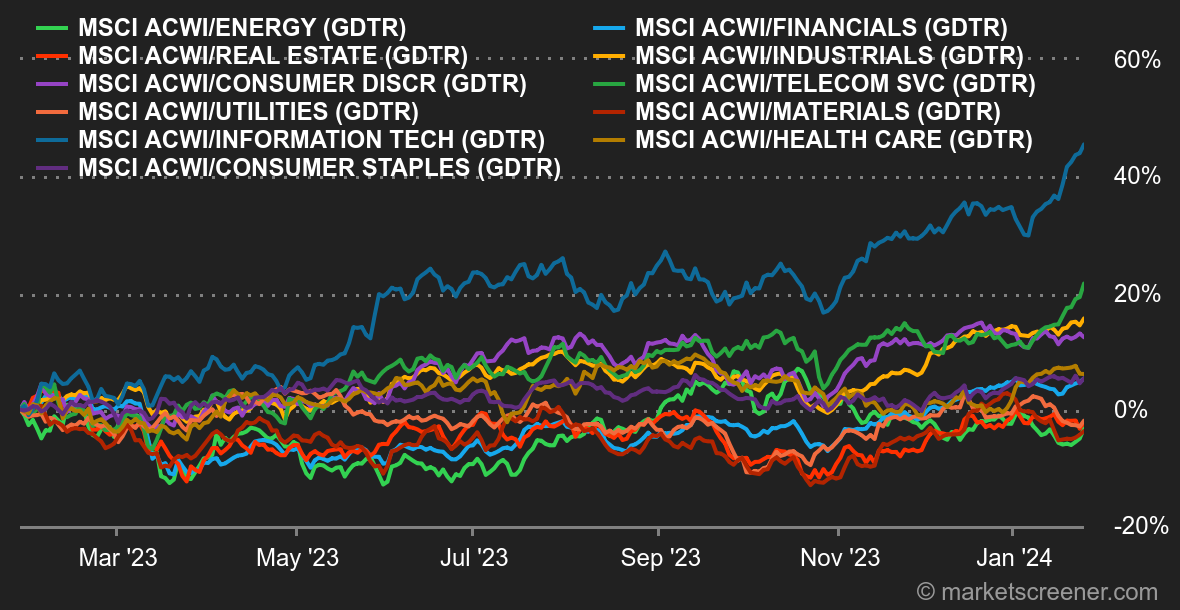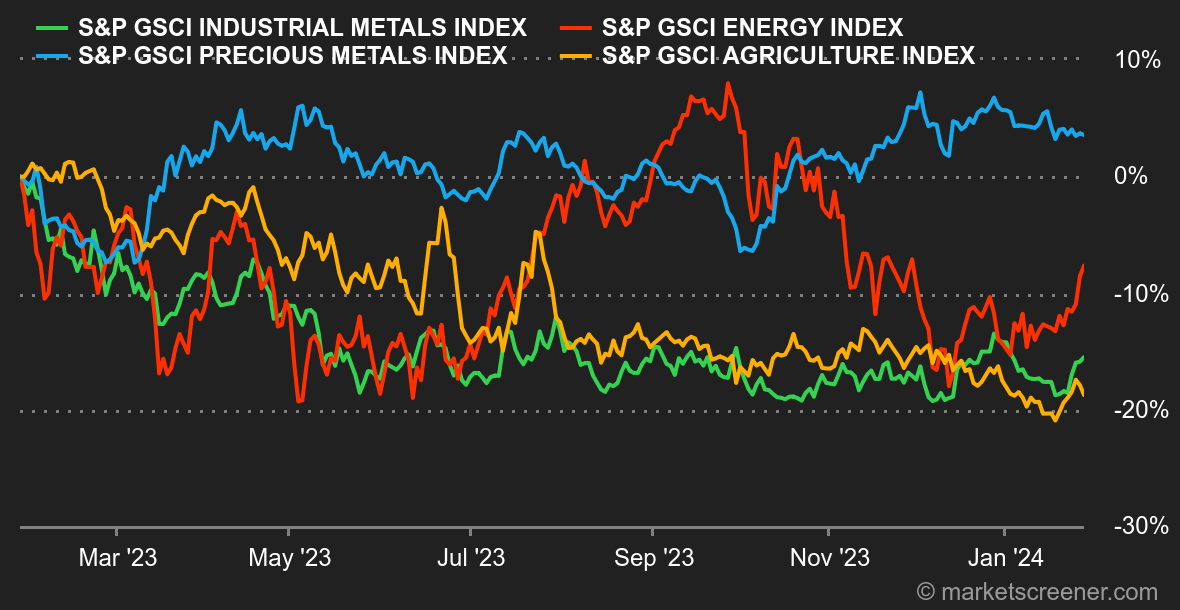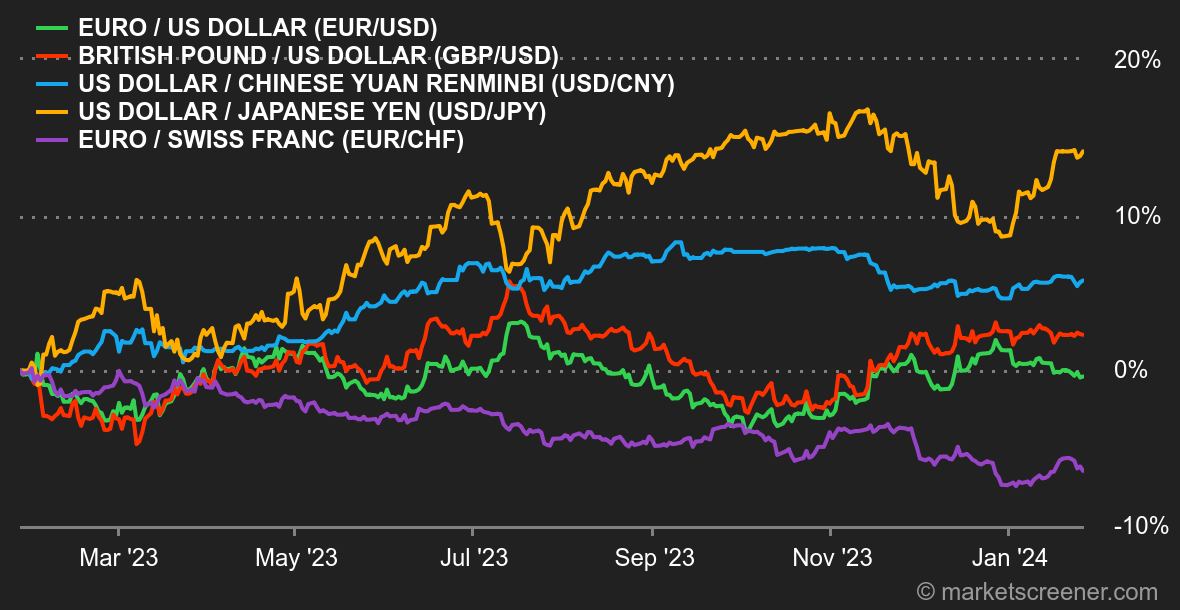Gainers:
- Netflix (+16%): Netflix overcame market doubts about its growth. The streaming giant reported quarterly revenues up 12.5%, driven by a 12.8% increase in the number of subscribers to 260 million. The group boasts an operating income that almost tripled year-on-year, to $1.49 billion, and a net profit that exploded over the period, from $55 million to $938 million.
- NetEase (+13%): The US-listed Chinese video game giant is simultaneously benefiting from the announcement of a rescue plan for the Chinese stock market, which reassures local investors, and from hopes of a softening of the regulations imposed on its industry by Beijing. Restrictions on online spending within video games could be lifted by the administration.
- IBM (+11%): The US IT group reported solid quarterly and full-year results (net income and sales up 9% and 4% in Q4), and published a revenue outlook well ahead of expectations, underpinned by strong demand for its artificial intelligence services. The company also expects to generate free cash flow of around $12 billion in 2024. This news propelled the company's shares to 10-year highs, and several analysts subsequently raised their price target on the stock.
- American Airlines (+12%), United Airlines (+11%): the two airlines managed to overcome Boeing's setbacks, despite aircraft groundings and flight plan revisions. They both reported better-than-expected results for the last quarter, and unveiled an encouraging outlook for 2024, anticipating a strong rebound in domestic and international travel.
Losers:
- Archer Daniels Midland (-25%): The US food giant is in upheaval. The company said it was suspending its CFO Vikram Luthar after an investigation was launched into its accounting practices in the nutrition segment. It also announced that it would delay the publication of its results for the fourth quarter and the year 2023. In the aftermath, several analysts downgraded their recommendation and lowered their target price for the stock.
- Tesla (-14%): There are several headwinds for the electric car champion. The group published lower-than-expected results for the fourth quarter, missed consensus on sales growth and reported a year-on-year decline in non-GAAP earnings. The automaker also announced a recall of 200,000 vehicles in the US for a software problem affecting rear-view mirrors, less than two months after a major recall. Management's cautious comments on the outlook for 2024 and Morgan Stanley's prediction of a fall in profitability in the near future further exacerbated the situation.
- Humana (-11%): The health insurance group disappointed investors. After posting an unexpected loss in the fourth quarter due to rising medical costs, the company unveiled a bleak outlook for 2024, forecasting profits well below analysts' expectations. The company's stock, which blames the Medicare program for its poor performance, has lost a third of its value since the end of October.
- Intel (-8.6%): Intel cast a pall over the market, with its cautious forecasts. The stock fell by 10% after the close of the session on Thursday after it said that its first-quarter revenue could miss estimates by over $2 billion. Intel lost 11.3% in premarket trading on Friday morning.
|

 By
By 




























